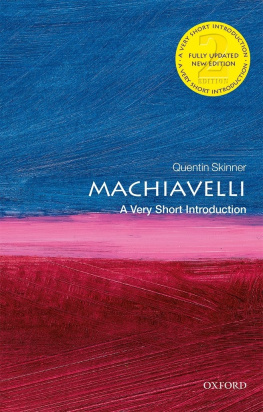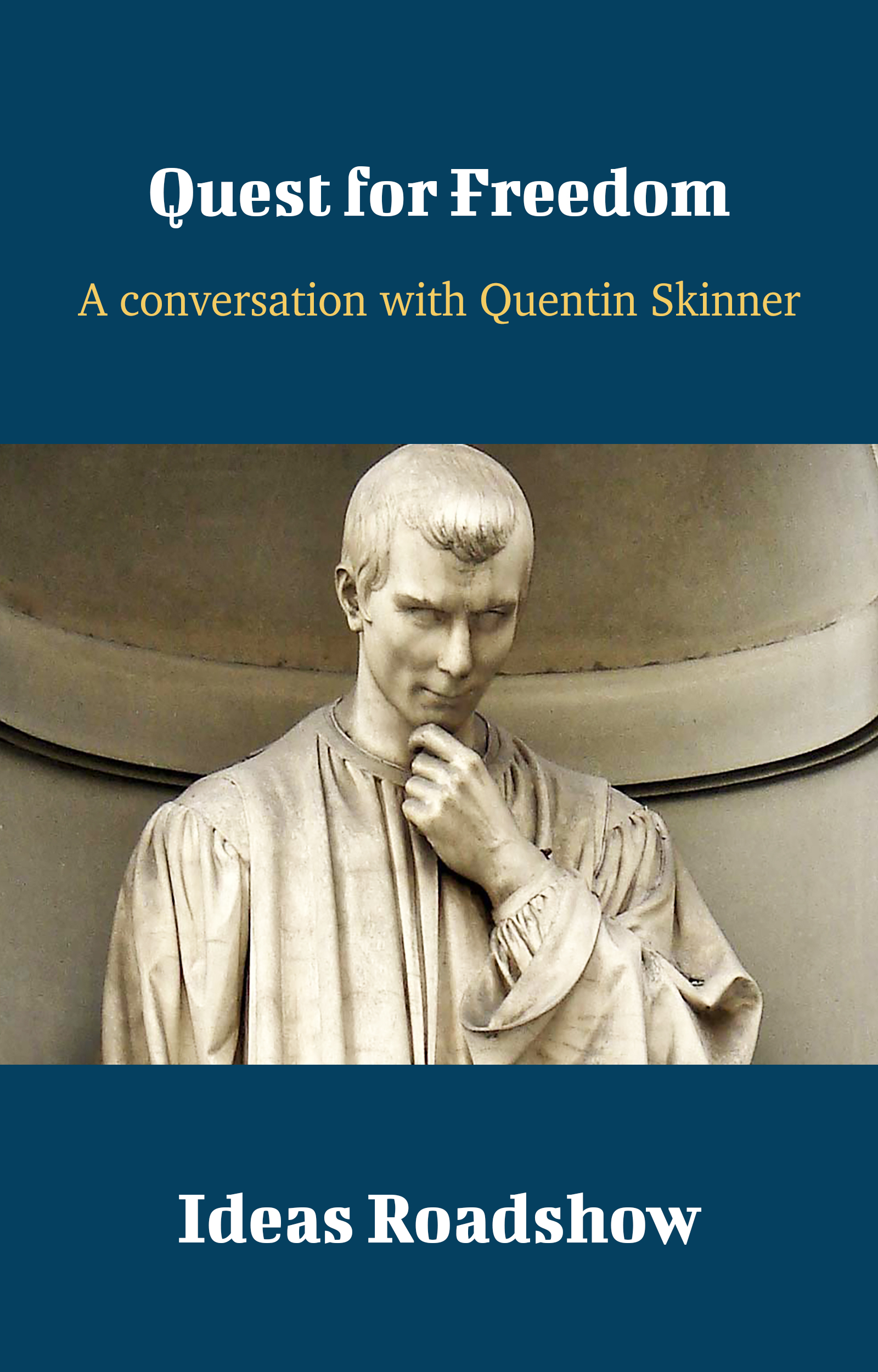The contents of this book are based upon a filmed conversation between Howard Burton and Quentin Skinner in Princeton, New Jersey, on June 5, 2014.
Introduction
Status Symbols
What does it mean to be free?
That hardly seems like a terribly difficult question to answer. Im free if Im unconstrained, unimpeded, allowed to act as I see fit. Simple, right?
Well, maybe.
Quentin Skinner, one of the worlds foremost intellectual historians, admits that the concept of freedom had long befuddled him.
It began with historical work that I was doing when I was writing my first book, The Foundations of Modern Political Thought. I was working on questions about Renaissance moral and political philosophy and came upon some ideas that, quite frankly, puzzled me, because I was assuming that there would be great continuity in thinking about questions of freedom and citizenship, but there wasnt. I was coming upon a view that suggested that you could not be a free citizen unless you were a politically engaged citizen.
Its not difficult to see the problem. For most of us, being politically active simply has nothing to do with our sense of being free.
In his customarily forthright fashion, Quentin shared with me his intellectual meanderings. Could it be that what he was grappling with was simply a rehashed view of Aristotles famous dictum that man was a political animal? That, as a naturally political creature, the free man was the exemplar of the species, the one who best realized his potential and thus was somehow maximally political? That freedom in some way represented some sort of acme of human moral potential?
Perhaps. After all, he admits, there was a good deal of modern precedent for such neo-Aristotelian thinking. The renowned 20th-century philosopher Hannah Arendt, in particular, makes an essential equivalence between freedom and politics.
For her, freedom just is politics. That is to say, the democratic project of people being thoroughly engaged as citizens is an instantiation and a declaration of freedom. So I started to think that that was what I was confronting.
But still, things didnt quite fit. He couldnt help feeling that the proper way to look at things wasnt so much a description of human potential, but rather a societal prescription for ensuring that you dont lose what youve already got. In other words, as Quentin puts it:
The more I read, the more I saw that the claim that was being made was a causal claim. In a way, that seemed more intuitive when I thought about it. The claim seemed to be that if you want to remain free as a citizen, then its a causal condition of the maintenance of that freedom that you should actively participate in the life of your community.
This, Quentin recognized, was a very different kettle of fish than the notion of the free person being unencumbered to perform this or that action. While the wordfreedomwas clearly the same, writers in the Renaissance and Ancient Rome were actually using it in an entirely different way.
What the writers I was finding in the Renaissance, and then back to Romanas opposed to Greekantiquity wanted to say, is that freedom should not be understood as a predicate of actions, essentially, at all. Freedom is the name of a status. Thats what they wanted us to understand. Their emphasis was not on whether Im free to do this or that. Of course that was important to them. But what was fundamental to them was the question, Do you have the status of being a free person? Thats the question theyre asking.
So score one for Professor Skinners literary detective skills. But why should we care whether or not classical Romans or Renaissance thinkers used terms like freedom differently from the way we do now? Isnt that just all ancient history?
No. Because Quentin believes truly understanding these classical thinkers might significantly inform our judgements as we grapple with some of todays pressing issues. When governments spy on our emails, for instance, they dont just violate our privacy (although they surely do that as well), they cause usever so slightlyto think differently, to act differently. We begin to consider leaving things out of our correspondence that could conceivably be regarded as incriminating. We begin to write different sorts of messages altogetherperhaps dont bother to write them at all. In other words, we start censoring ourselves.
To an ancient Roman, such behaviour could be categorized quite simply: we start acting slavishly, rather than as free men.
Nobody is stopping me, no one is interfering directly with me writing the emails I want to write. But again, thats the way of thinking about freedom superficially. Thats surface stuff.
What were talking about is something much more fundamental, a democratic citizen thinking, Well, I dont know if I can really say this anymore . And thats the point: I dont know. Thats what it is to live like a slave in a certain domain: you dont know what might happen to you.
And if never knowing what might happen to you is the lot of the slave, how can the free citizen guarantee that this never happens to herthat her free status is protected? By ensuring that she lives in a society with no arbitrary powers beyond her controlby ensuring that the rule of law applies in all circumstances, and that the law itself is a clear expression of the free citizens will.
What this mandates is a particular form of a very active democratic citizenship as a condition of upholding freedom, but not as a condition of upholding freedom as being left alone to do whatever I want. The freedom that is being upheld is freedom from arbitrary power, because if youre not free from arbitrary power, you dont have freedom in this absolutely fundamental sense.
Weve arrived, then, at the claim that safeguarding our civil liberties and protecting ourselves from the encroachment of arbitrary powers requires an active participation in the democratic process.
Somehow, from ruminating on the precise motivations of celebrated Renaissance thinkers, were led to a core belief about the importance of civic action that you could easily imagine hearing at any Black Lives Matter protest.
If thats not a palpable demonstration of the ongoing relevance of the history of ideas, Im not sure what is.












